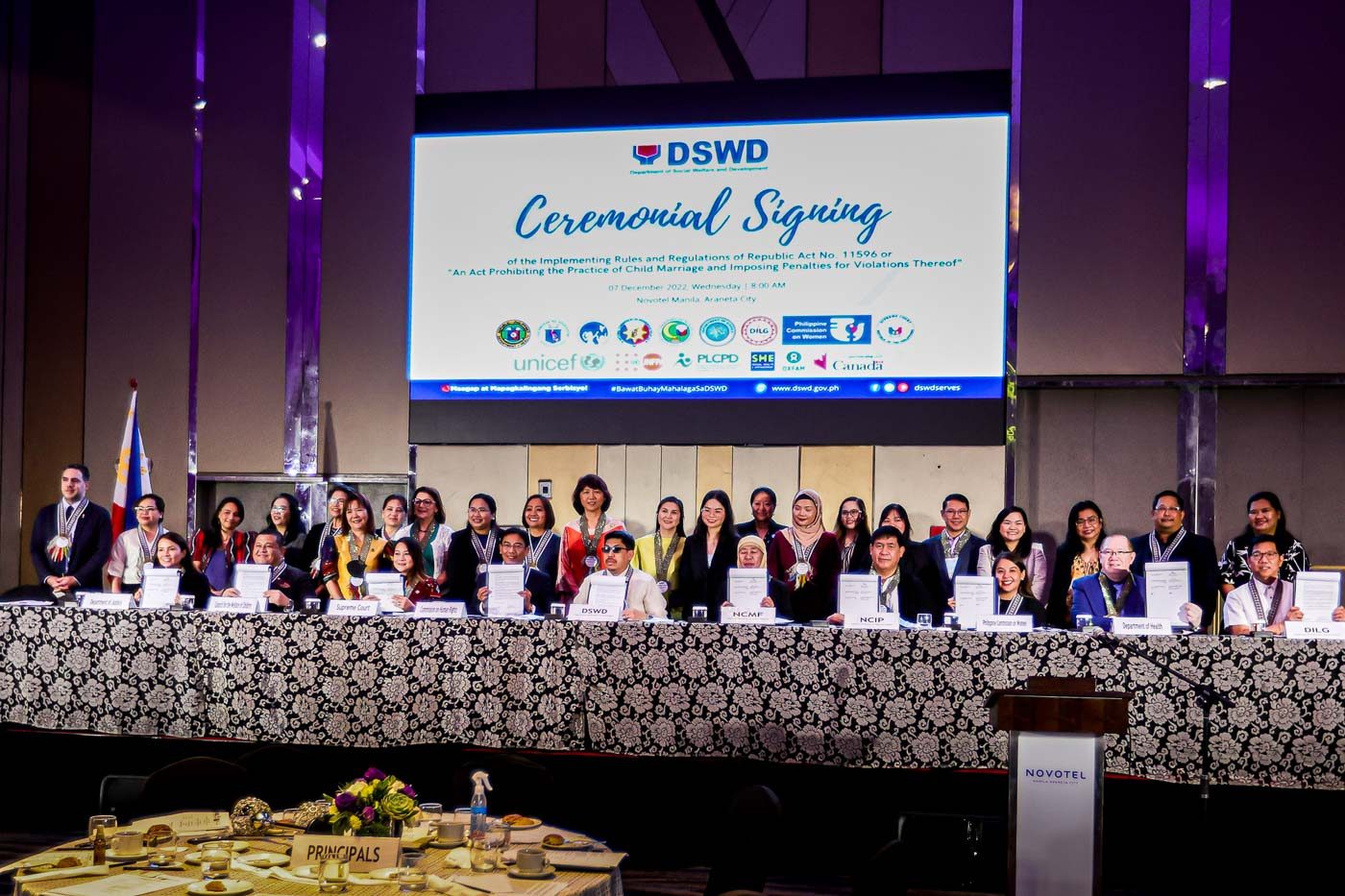SUMMARY
This is AI generated summarization, which may have errors. For context, always refer to the full article.

MANILA, Philippines – The law banning child marriages in the Philippines can now be fully implemented after various government agencies, nongovernmental organizations (NGOs), and civil society groups signed the law’s implementing rules and regulations (IRR) on Wednesday, December 7.
The public and private sector came together at the Novotel Hotel in Quezon City for the ceremonial IRR signing of Republic Act No. 11596, which made the practice of child marriage illegal in the country. Before then-president Rodrigo Duterte signed the law in December 2021, child marriage was practiced among Muslim Filipinos based on the Code of Muslim Personal Laws.
The measure imposes penalties on facilitation and solemnization of child marriage, and the cohabitation of an adult with a child outside wedlock.
Public officers who violate the law will be dismissed from service and may be perpetually disqualified from holding office, if courts decide such a penalty is merited.
Violators can face jail time of up to 10 years, with fines of up to P50,000 ($901).
The law also makes child marriages void ab initio, or void from the beginning.
According to the Girls Not Brides organization, child marriage in the Philippines is exacerbated by trafficking, religion, school drop-outs, adolescent pregnancies, and internal conflicts and displacement.
“The displacement in the Bangsamoro region (most recently in 2015) resulted in a number of child marriage cases, as families in evacuation centers saw marrying off their daughters as a coping mechanism due to economic instability, fear of violence, and a felt need to maintain ‘family honor,'” said Girls Not Brides.
A report by Plan International revealed that, in the 2017 Marawi siege crisis, early and forced marriage was a common form of violence against girls in evacuation sites. Girls were forced to marry their perpetrators in cases of sexual violence.
Girls Not Brides said the Philippines ranked 10th in the world in terms of the highest absolute number of women married or in a union before reaching the age of 18 – at least 808,000.

The anti-child marriage law also outlines preventive measures, as the government is now mandated to empower children through information, skills, and support networks; improve their access to education; and make strategic interventions to empower parents and communities to eradicate the practice of child marriage.
With an IRR in full force, the various stakeholders in the fight against child marriage – like the social welfare, health, education, and interior departments – have clear and specific guidelines on how to fully implement the law in line with their mandates. – Rappler.com
$1 USD = P55.45
Add a comment
How does this make you feel?

![[OPINYON] Diborsiyo sa mata ng isang anak](https://www.rappler.com/tachyon/2024/06/new-school-divorce-children-june-13-2024.jpg?resize=257%2C257&crop=294px%2C0px%2C720px%2C720px)



![[OPINION] Power of mimicry: How human rights are covertly undermined in PH](https://www.rappler.com/tachyon/2024/06/duterte-marcos-human-rights.jpg?resize=257%2C257&crop_strategy=attention)




There are no comments yet. Add your comment to start the conversation.